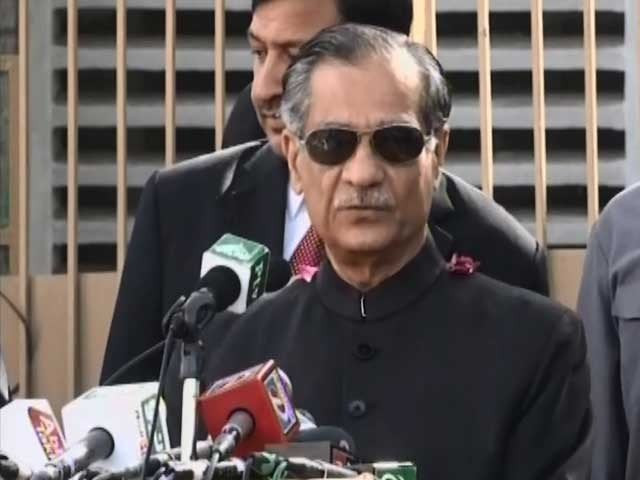CJP calls for resolving missing persons issue under law
A very compressive statement was issued regarding the meeting’s outcome

CJP Mian Saqib Nisar: PHOTO:EXPRESS/FILE
Instead of fixing the missing persons case in court, the chief justice preferred to hold a meeting which was attended by Commission of Enquiry on Enforced Disappearances Chairman Javed Iqbal, secretaries of the ministry of defence and interior as well as representatives of the law and intelligent agencies.
Later, a very compressive statement has been issued regarding the meeting’s outcome.
At the very outset, the chief justice showed his concern over constitutional obligations of all state institutions, especially courts, on the subject as it is an issue relating to the inviolable right of every citizen to life and liberty.
No prestigious institutions, IHC judge tells ISI
The chief justice emphasised that it is the duty of all departments concerned to guard their image and clear the issue to the extent of perception.
However many persons are apprehended, they should be dealt with in accordance with law, he said.
In this regard, if improvement is not seen in the near future, the Supreme Court can consider taking up the matter as a serious violation of human rights under Article 184(3) of the Constitution.
It was emphasised by the CJP that the Supreme Court will not tolerate such illegalities inflicted on the lives and liberty of the citizens.
They were asked to devise a reporting mechanism to verify if some missing persons are not confined in jails of neighbouring countries or have joined terrorist outfits.
It was also emphasised that a proper forensic data of fingerprints and DNA be developed as thousands of burials of unidentified bodies are made by NGOs like Edhi and others.
The chief justice also emphasised that there is a need to have clear reporting of the persons killed in drone attacks and conflicts in neighbouring and other countries.
Whereas, there is a large number of workers of an ethnic political group who are settled in South Africa, Middle Eastern and far eastern countries and generally they are wrongly counted in missing persons.
It was explained by almost all participants that the figures generally quoted in this regard are extremely exaggerated and the fact is so evident from the cases reported to the commission.'
In a rare verdict, IHC slams fine on retired three-star general
In this regard, the commission, since its inception, i.e., March 2011, has received about 5,290 cases out of which 2,636 have been traced, 446 were found not to be cases of enforced disappearance, whereas 382 cases were deleted on different technical grounds -- including non-prosecution and incomplete addresses.
Presently, the commission has pendency of only 1,828 cases. The performance of the commission, its dedication and understanding of the subject was appreciated.
It was highlighted in the discussion that there is a wide gap between the public perception and the reality and that a far larger number of persons are shown as missing than is actually the case.
Even the persons who have themselves gone abroad, languishing in the jails of different countries, especially Afghanistan and the Middle East, are also wrongly included.
Some of them have crossed the borders to join terrorist outfits and a large number has also been identified who have been declared proclaimed offenders by courts in different cases and have gone underground.
That is beside the fact that in quoting the figure many of the cases are reported in duplication, i.e., some cases are reported at different forums and counted twice.
It was also apprised that there is reported role of hostile agencies of neighbouring countries as well and in many of the cases, persons attempting to impersonate agencies officials are apprehended.
Before his retirement, former CJP Iftikhar Muhammad Chaudhry passed a demeaning judgment against the establishment secretary in 35 missing persons cases.
The former CJP in his judgment held that enforced disappearance is a crime against humanity.
In view of the verdict, an FIR was also registered against army officials involved in the abduction of 35 missing persons, who were detained at internment centres.



















COMMENTS
Comments are moderated and generally will be posted if they are on-topic and not abusive.
For more information, please see our Comments FAQ